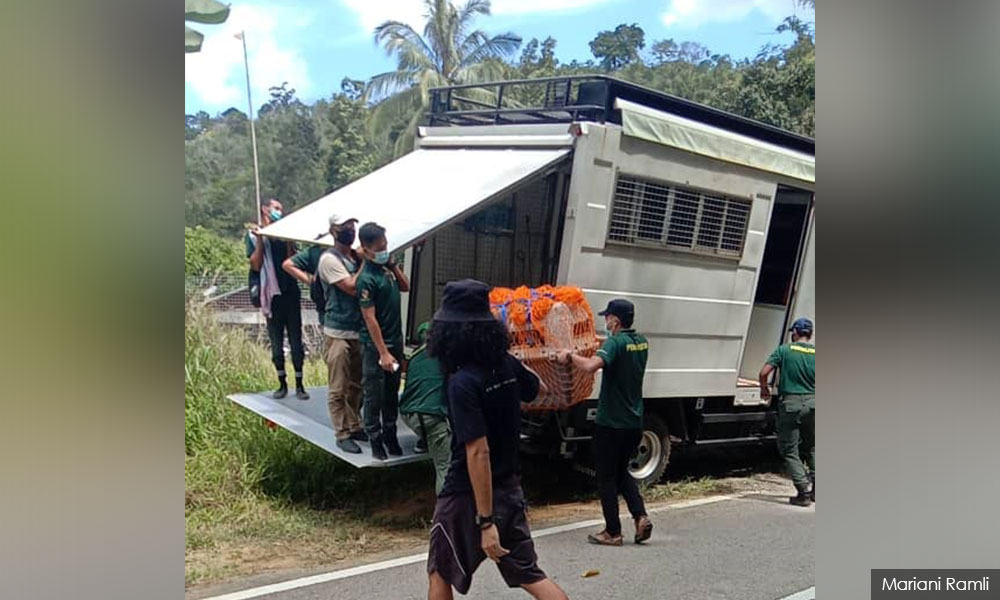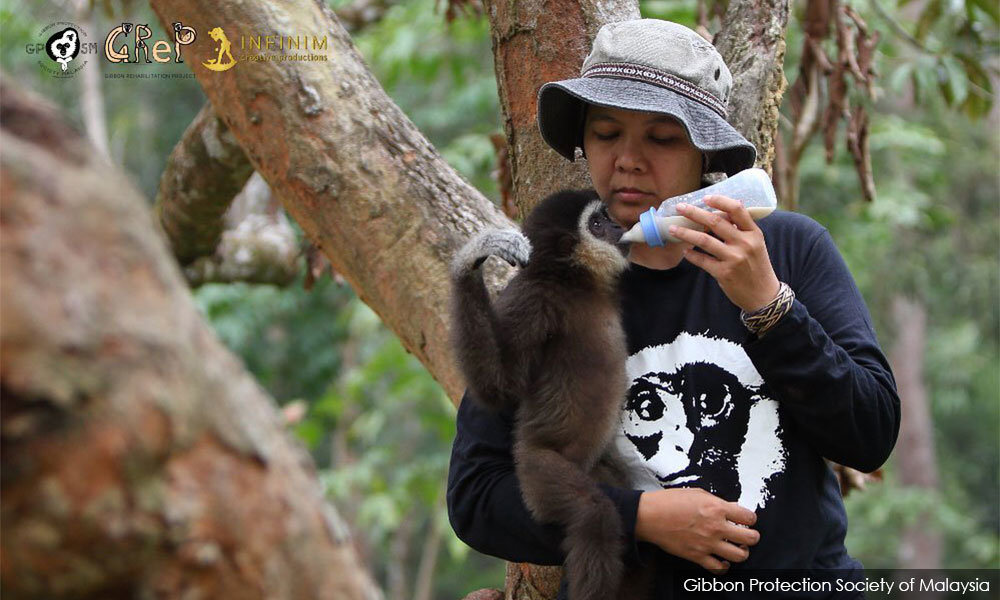Gibbon Rehabilitation Project (Grep) founder Mariani Ramli has sought a meeting with the Water, Land and Natural Resources Ministry over the confiscation of six gibbons from her centre.
The gibbons were seized by the Wildlife and National Parks Department (Perhilitan) following three raids conducted on Dec 29, 30 and 31 last year.
Her request came after her meeting with Perhilitan Peninsular Malaysia director-general Abdul Kadir Abu Hashim on Monday (Jan 4) “did not go as we hoped”.
During the meeting, she said Abdul Kadir had informed her that none of the gibbons had been injured during the raids and that they were doing well in quarantine.
She claimed he had requested that she “stop posting rumours and creating stories that instigate hatred” towards Perhilitan. He had also asked that she stop a petition calling for the department to return the six primates to Grep.
In response, Mariani (above) questioned his statements because Perhilitan has yet to seek information on the six gibbons since the raids.
“How can Perhilitan hope to continue their rehabilitation process without their history and information and how will Perhilitan be able to determine whether they are ready to be released or not?” she asked.
Public accountability
Mariani also underscored her centre’s accountability to the public.
“Grep operates under public donations received through the Gibbon Conservation Society (GCS) and GCS is an NGO.
“As members of GCS, we have to be honest and transparent with the public at all times on the ongoing work we are doing at the project site,” she said.
The petition, meanwhile, was started by someone else.

Mariani further shared that she has been denied access to the National Wildlife Rescue Centre (NWRC) in Sungkai, Perak where the six gibbons are being kept.
Perhilitan raided Grep following a legal tussle between the department and Mariani. A former Perhilitan ranger, she had taken the department to court in 2016 after Perhilitan terminated her employment and withdrew her permit to possess gibbons, a wild animal.
The Court of Appeal handed a win to Perhilitan on Nov 15, 2020, but Mariani’s lawyers have since communicated their intention to appeal the decision at the Federal Court.
Perhilitan contends that the Court of Appeal decision allows them to seize the six gibbons.
Mariani thus urged for a meeting between her, the Water, Land and Natural Resources Ministry and Perhilitan to resolve the matter.
“I would also like to openly suggest and offer to sit down and discuss with the Ministry of Water, Land and Natural Resources as well as Perhilitan to take another look at the policy for wildlife management in Peninsular Malaysia where we can adopt the policy in other countries.
“Where NGOs are able to operate rescue and rehabilitation centres in order to assist the government in rehabilitating our wildlife and sending them back to the forest with proof of success,” she said.
International appeal
The Grep centre is recognised by the International Union for Conservation of Nature (IUCN) for its gibbon rehabilitation work.
Mariani, meanwhile, is a member of the IUCN Primate Specialist Group’s Section on Small Apes.

In a separate statement, fellow IUCN member Florian Magne criticised Perhilitan’s move to seize six gibbons from Grep.
He is the executive director of the Huro Programme, a gibbon rehabilitation centre based in India.
Magne urged Perhilitan to allow IUCN experts to visit the primates for monitoring purposes.
“One week after their capture, we at the IUCN are left with no news about their fate, their captive condition, their social condition, their psychological condition nor their health status.
“I am imploring Perhilitan to grant IUCN access to these six gibbons so they can be monitored and evaluated by our experts, totally independently, as soon as possible in the best interests of everyone,” he said.
He further underscored the importance of following proper procedures before releasing rehabilitated gibbons into the wild.
“Any hard released attempt is strongly unrecommended as per IUCN best practices guidelines and will ultimately lead to dramatic outcomes,” he said.
Malaysia is home to five of the 20 gibbon species. All five are listed on IUCN's Red List of Threatened Species.
Despite their endangered status, there is little data on their exact numbers in Malaysia. Wild gibbons in the country are also threatened by poaching. - Mkini




No comments:
Post a Comment
Note: Only a member of this blog may post a comment.